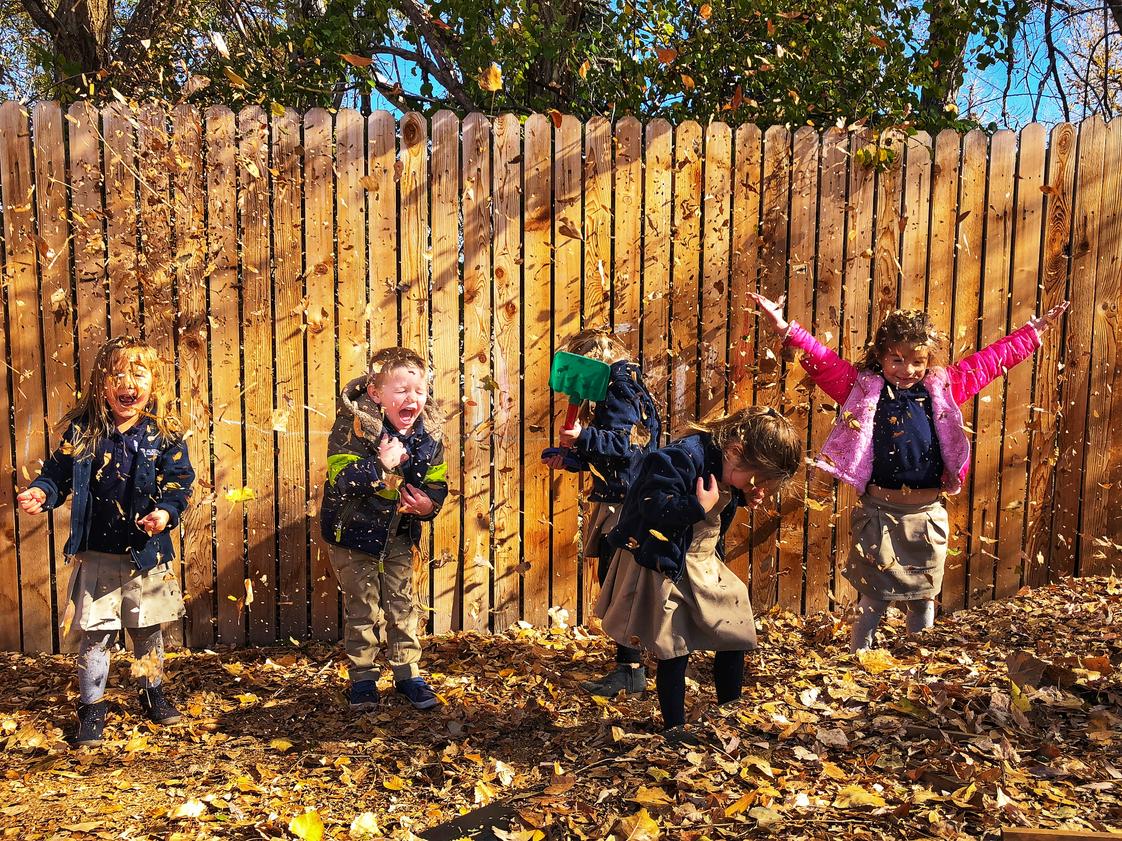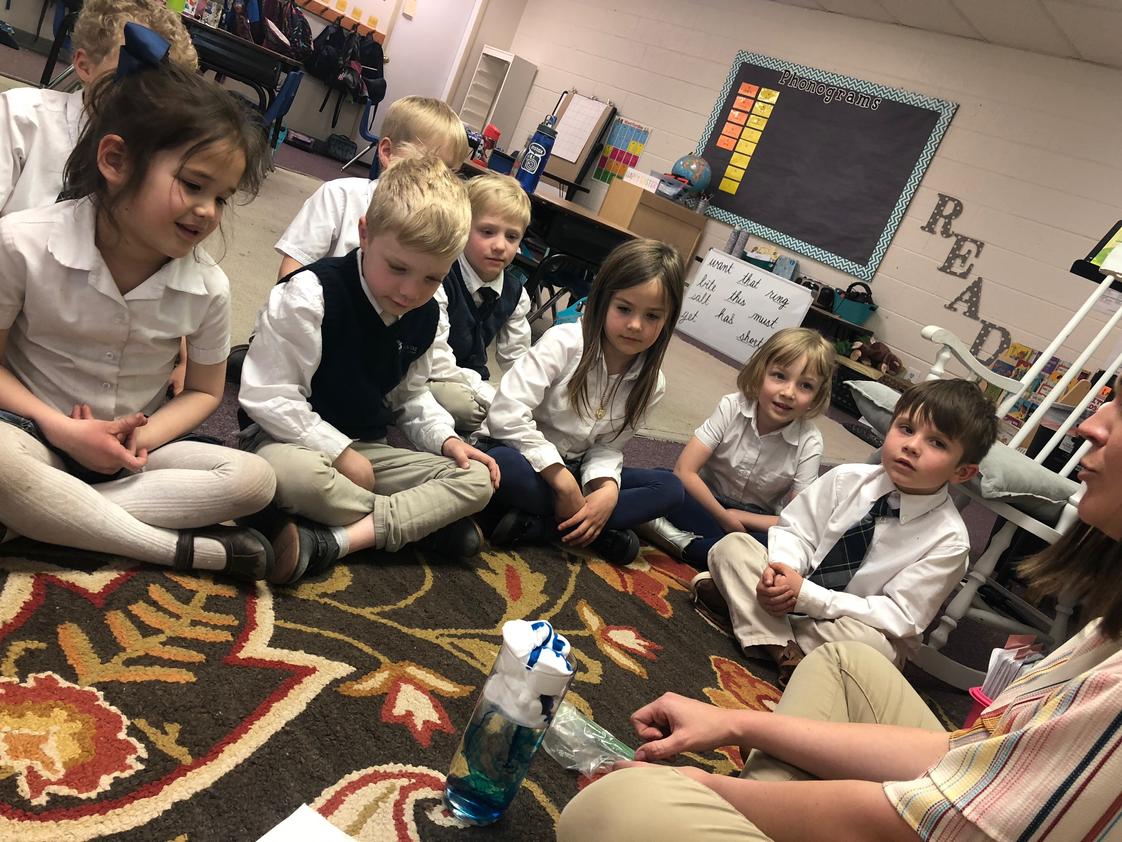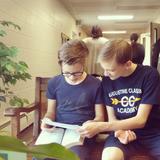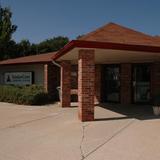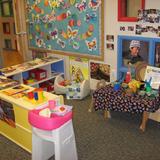Founded in 2011, Augustine Classical Academy (ACA) is a preschool-12 Christian liberal arts school located in Lakewood, CO, a suburb of Denver, Colorado.
With a student population of 250 students, our mission is to equip youth to know, love, and practice what is true, virtuous, and beautiful for the glory of God and the good of all people.
The primary objective of the Logic School (grades 6-8) is to teach students the appropriate tools of reasoning so that they can effectively discern truth from falsehood.
The primary objective of the Rhetoric School (grades 9-12) is to teach students to think creatively and critically, and to express themselves with love and courage as they apply their knowledge and their reason to a variety of subjects.
Quick Stats (2025)
- Top Ranked CO School
- Grades: Prekindergarten-12
- Enrollment: 252 students
- Yearly Tuition: $10,210
- Application Deadline: None / Rolling
- Source: Verified school update
Top Rankings
Augustine Classical Academy ranks among the top 20% of private schools in Colorado for:
Category
Attribute
Student Body
School Overview
School Membership(s)School Assoc.
Religious Affiliation
Grades Offered
Grades Prekindergarten-12
Year Founded
2011
Student Body
Total Students
252 students
Student Body Type
Co-ed
Students by Grade
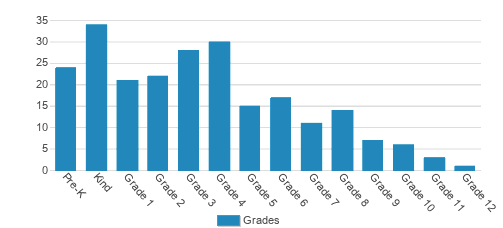
Academics and Faculty
Total Classroom Teachers
33 teachers
Student : Teacher Ratio
8:1
National avg.: 13:1
% Faculty w/Advanced Degree
27%
List of Courses Offered
Classroom Dress Code
Formal
Tuition and Acceptance Rate
Admission Deadline
None / Rolling
Yearly Tuition Cost
$10,210
Tuition Notes
Preschool & Pre-K: $3,600
Grades K-5: $10,210
Grades 6-8: $10,405
Grades 9-12: $10,850
Homeschool Collaborative: $4,865
% on Financial Aid
30%
Admissions Director
Kylie Crossland
Sports
Total Sports Offered
2 sports
Sports
Extracurriculars
Total ExtracurricularsTotal Extra-curric.
3 extracurriculars
ExtracurricularsExtra-curric.
Club or Organization:
cup stacking, Speech, theater
cup stacking, Speech, theater
School Notes
AT ITS CORE, CLASSICAL CHRISTIAN EDUCATION ACCOMPLISHES THREE
THINGS:
Today`s classical, Christian education takes richness of content-literature, mathematics, science, grammar, art, history, music, Latin, logic, rhetoric-and combines it with some of what we know now about a child`s natural brain development. Supporting this time-tested methodology is a posture of worship to the Living God who is the Good Author of all there is to know, all there is to teach, and all there is to learn.
In the grammar phase (roughly K-5), students learn the fundamental rules and elements of each subject. We know that children at this age enjoy memorization, so in these early years of their education, they learn facts: poetry; Latin vocabulary; the stories of literature and history; math facts; descriptions and functions of the human body, plants, and animals; the rules of English grammar. In short, students in these ages are (eagerly) absorbing the grammar-or foundational knowledge-for the next stage of their education.
Next is logic (roughly the middle-school years). As students become more analytical in their thinking-exploring cause and effect, relationships among disparate topics, and the ways facts relate in a logical framework-instruction in logic expands. For example, in writing, students learn to support a thesis; in reading, they learn to analyze texts for truth and fallacy; in science, they learn to use the scientific method.
The last phase of a classical education, during the high school years, is rhetoric, which builds on the first two phases. Students learn to apply the rules of logic to the knowledge they`ve built during their classical education and express their ideas in clear, expressive, persuasive language.
These three elements-grammar, logic, and rhetoric-together make up the Trivium, Latin for "the place where three roads meet."
So what? Learning in a classical setting gives context and structure to knowledge; instead of a system of education whose organizing principle is standardized testing, classical education enables students to see the interconnectedness of all knowledge. No more "silo" subjects, taught in vacuums. Here, all there is to know relates-and points to the nature of God the Creator and Redeemer.
Note: This summary is adapted from The Well-Trained Mind by Susan Wise Bauer, which you can find here.
- It teaches all subjects as components of an integrated whole, created and ordered by God.
- It cultivates wisdom and virtue by feeding the mind and soul works that are true, good, and beautiful.
- It fosters in students a love of learning and equips them with tools for a lifetime of discovery.
- An educational approach that recognizes the centrality of Christ
- Staff devoted to creating nurturing, gracious, and orderly classrooms
- A community devoted to educating the whole child
- Small class sizes with no class larger than 16 students
- A commitment to making this high-quality private education affordable for all families
Today`s classical, Christian education takes richness of content-literature, mathematics, science, grammar, art, history, music, Latin, logic, rhetoric-and combines it with some of what we know now about a child`s natural brain development. Supporting this time-tested methodology is a posture of worship to the Living God who is the Good Author of all there is to know, all there is to teach, and all there is to learn.
In the grammar phase (roughly K-5), students learn the fundamental rules and elements of each subject. We know that children at this age enjoy memorization, so in these early years of their education, they learn facts: poetry; Latin vocabulary; the stories of literature and history; math facts; descriptions and functions of the human body, plants, and animals; the rules of English grammar. In short, students in these ages are (eagerly) absorbing the grammar-or foundational knowledge-for the next stage of their education.
Next is logic (roughly the middle-school years). As students become more analytical in their thinking-exploring cause and effect, relationships among disparate topics, and the ways facts relate in a logical framework-instruction in logic expands. For example, in writing, students learn to support a thesis; in reading, they learn to analyze texts for truth and fallacy; in science, they learn to use the scientific method.
The last phase of a classical education, during the high school years, is rhetoric, which builds on the first two phases. Students learn to apply the rules of logic to the knowledge they`ve built during their classical education and express their ideas in clear, expressive, persuasive language.
These three elements-grammar, logic, and rhetoric-together make up the Trivium, Latin for "the place where three roads meet."
So what? Learning in a classical setting gives context and structure to knowledge; instead of a system of education whose organizing principle is standardized testing, classical education enables students to see the interconnectedness of all knowledge. No more "silo" subjects, taught in vacuums. Here, all there is to know relates-and points to the nature of God the Creator and Redeemer.
Note: This summary is adapted from The Well-Trained Mind by Susan Wise Bauer, which you can find here.
Source: Verified school update
Frequently Asked Questions
How much does Augustine Classical Academy cost?
Augustine Classical Academy's tuition is approximately $10,210 for private students.
What sports does Augustine Classical Academy offer?
Augustine Classical Academy offers 2 interscholastic sports: Cross Country and Flag Football.
What is Augustine Classical Academy's ranking?
Augustine Classical Academy ranks among the top 20% of private schools in Colorado for: Largest student body.
When is the application deadline for Augustine Classical Academy?
The application deadline for Augustine Classical Academy is rolling (applications are reviewed as they are received year-round).
School Reviews
5 4/6/2019
ACA is a great school. I am committed to Christian education, and ACA is that, and more. We have been part of the ACA community for seven years, and love how it really is a caring community. The class sizes max out at 16, so teachers know my children. My kids learn a lot, and the regular recitations prove that. One of my favorites, is hearing Kindergarden recite all the presidents. I recommend ACA to parents interested in a rigorous Christian education for their children, and those who love a tight-knit community of parents.
Endorse Augustine Classical Academy. Endorsements should be a few sentences in length. Please include any comments on:
- Quality of academic programs, teachers, and facilities
- Availability of music, art, sports and other extracurricular activities
- Academic or athletic awards
Recent Articles

A Parent's Guide To Understanding High School Teaching Methods
This comprehensive guide helps parents navigate the various teaching methods used in today's high school classrooms. By understanding these approaches, you'll be better equipped to support your teen's learning journey, communicate effectively with teachers, and create a complementary learning environment at home.

February 08, 2025
Social Emotional Learning: Education's Hidden SymphonyA musician's perspective on Social Emotional Learning reveals how this educational framework orchestrates success through five essential emotional competencies.

January 24, 2025
A Roadmap For Starting A Private SchoolUse this roadmap as a set of talking points with your trusted mentors and professionals to start the private school of your dreams. You're not alone. Over the years, hundreds of folks like you have had the same dream. From Quintilian to Maria Montessori to Lucy Madeira Wing, visionary educators have established schools to teach according to their beliefs and methodologies.

